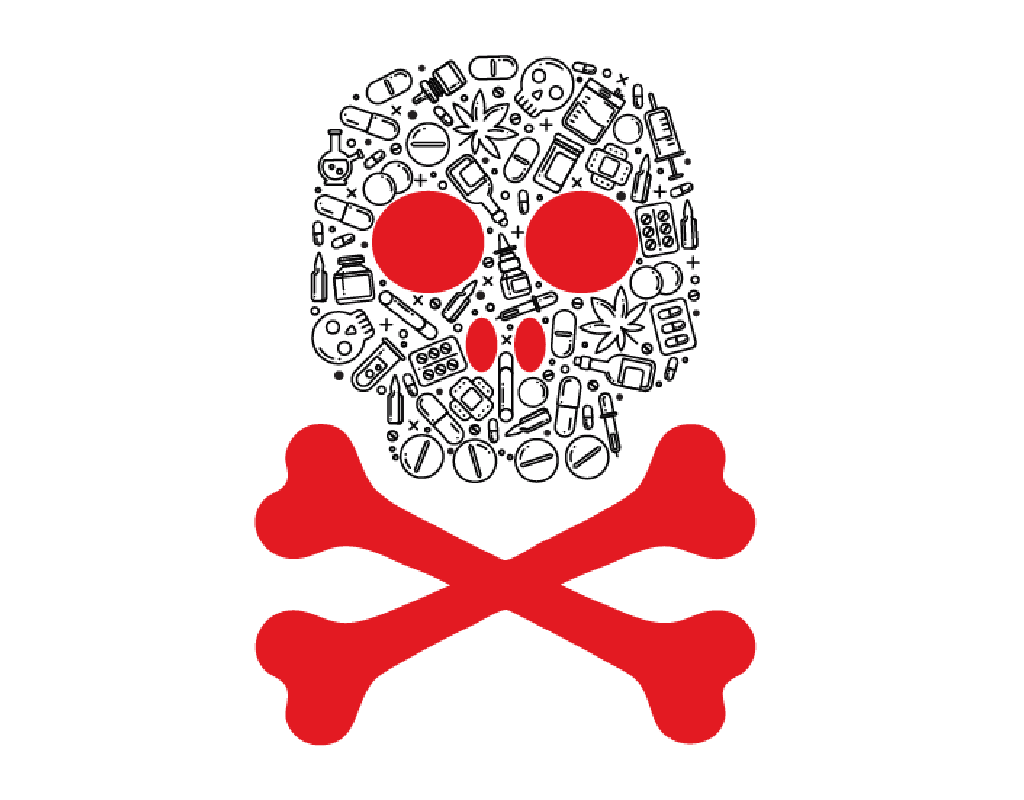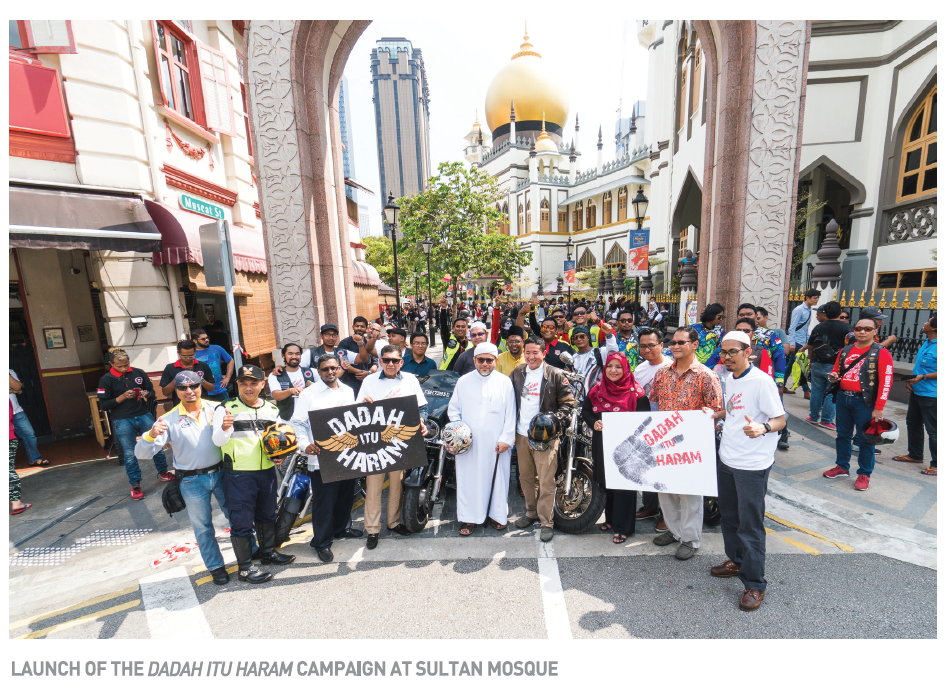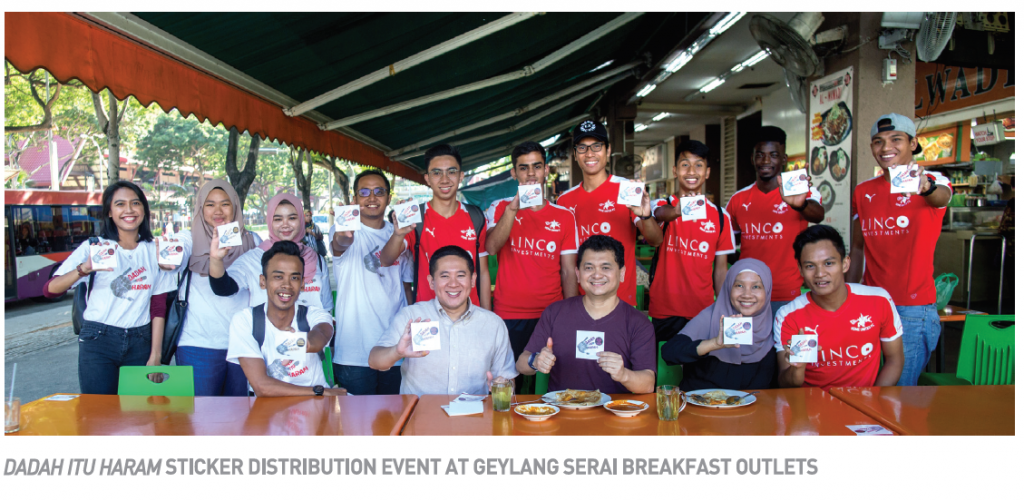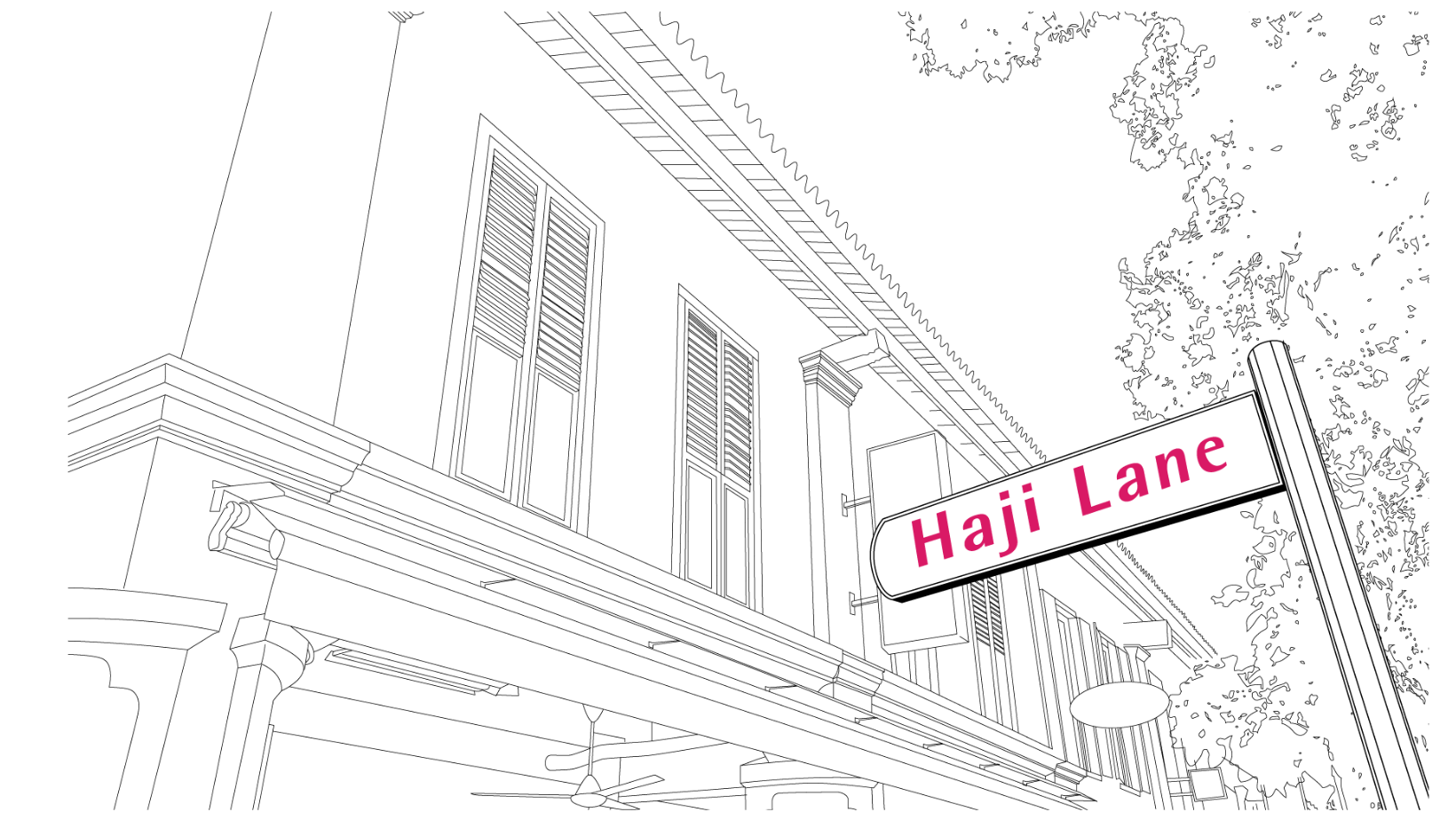DRUG SITUATION
Drug abuse is a complex issue that affects all communities. Malays, however, are significantly over-represented in the abuse of drugs.
In 2017, Malays formed 52% of drug abusers arrested. This has increased compared to 10 years ago when the proportion of Malay drug abusers was 47%. Similarly, the proportion of new Malay drug abusers has increased from 36% in 2007 to 50% in 2017.
Last year, 38% of drug abusers arrested are new, first-time abusers. 10 years ago, it was 18%. It has more than doubled and gone up in absolute numbers – new Malay drug abusers arrested per year increased from 187 in 2007 to 627 in 2017.
The issue is compounded by the growing movement overseas to trivialise the drug problem. Our youths read about how drugs like cannabis are legalised overseas, how it seems to have medicinal benefits and may be less harmful or addictive.
A survey conducted by the National Council Against Drug Abuse (NCADA) in 2016 found that young people below the age of 30 were more open-minded towards drugs, as compared to three years ago. Cannabis is the third most commonly abused drug in 2017.
The claim that cannabis is not harmful is not accurate. A team of psychiatrists and researchers from the Institute of Mental Health conducted a literature review on cannabis in 2015. Based on their review of more than 500 papers from reputable international medical journals, there is clear evidence that cannabis is both harmful and addictive. For example, prolonged cannabis use can lead to serious mental illnesses such as schizophrenia, depression and bipolar disorder.
It is evident that drug abuse destroys many lives beyond just the abuser – innocent young lives and families are harmed as well. We have also seen addictions affecting families inter-generationally.
NCADA’S ROLE IN ANTI-DRUG AWARENESS
NCADA was formed in January 1995 to serve as a citizens’ advisory council to the Ministry of Home Affairs (MHA) on national anti-drug strategies and programmes. NCADA’s key roles include advising the Government on national anti-drug strategies and programmes, harnessing community support for anti-drug programmes and promoting Preventive Drug Education programmes to educate the public on the dangers of drug addiction. Since 2012, NCADA’s additional mandate includes conducting research and supporting Singapore’s international anti-drug advocacy efforts.
To promote ground-up anti-drug initiatives and encourage community groups to assume a greater role in the fight against drug abuse, NCADA administers the NCADA DrugFreeSG Fund to provide funding support for individuals and groups to organise anti-drug projects and events. Since its launch, an average of three projects are funded annually under the fund.
In December 2016, NCADA launched the Anti-Drug Abuse Advocacy (A3) Network to leverage persons-of-influence to correct misperceptions of drug abuse and drug policies, and more importantly, to positively influence Singaporeans to lead drug-free lifestyles. NCADA will also be launching a NCADA social media campaign as part of the National Campaign Against Drugs in the later part of the year to encourage the community to play their part in supporting NCADA in the anti-drug advocacy. Together with the community organisations, NCADA plans to reach out to more young people and parents, so that our youths stay away from drugs and harmful lifestyle. We will also be reaching out to the family and children of drug offenders.
NCADA, together with the Central Narcotics Bureau and MHA, works with multiple partners on our engagement efforts and programmes. Close partnerships with the Malay-Muslim community are also formed to tackle the issue of offending and re-offending, and key community partners have come forward to contribute to this important cause.
NEW INITIATIVES BY MALAY-MUSLIM ORGANISATIONS
In early 2017, the Association of Muslim Professionals (AMP) developed and piloted a counselling and aftercare programme to ensure inmates have continuity of care from prisons to aftercare, to prevent them from re-offending. A major component of the programme is the case management of families of the inmates to help them be financially stable and economically independent. The programme will cover 150 first-time Muslim drug abusers from the Drug Rehabilitation Centre.
In the second half of this year, PERGAS will implement a second pilot run of the Insan Mukmin programme. The Insan Mukmin programme is the first evidence based Muslim counselling programme and was piloted in 2015 with a batch of 24 first-time Muslim drug abusers. The feedback received from the first pilot was positive and PERGAS will continue a second run of the pilot involving a different group of inmates.
In April 2017, Senior Parliamentary Secretary Amrin Amin, together with the Dadah itu Haram coalition led by PERGAS and partners from Safinah Institute, Muhammadiyah Welfare Home, Riders Group, SimplyIslam, IslamicEvents.sg and Muslim Youth Forum, launched the Dadah itu Haram campaign. The campaign’s objective is to appeal to the Singapore Muslim community, with an emphasis on the youths. This is a groundup, community-led initiative to spread the Islamic prohibition on drugs. The outreach is focused on people-to-people,grounded on daily living experiences and invites collaborative partnership and taking ownership of the issue.
Since the campaign was launched, the coalition has reached out to 60,000 individuals and recruited 200 volunteers. More than 250 shops support this initiative, including 50 barber shops with a reach of over 10,000 customers each week. The barbers are helping to spread anti-drug messages by displaying Dadah Itu Haram stickers at their shop entrances and mirrors.
NCADA is encouraged by the strong support from the Malay-Muslim community, particularly the youths and students, who have been supporting us in the fight against drugs. NCADA will continue to collaborate with Malay-Muslim organisations and the Dadah itu Haram coalition to step up preventive education engagement efforts, and continue to reach out to more individuals to spread the anti-drug message.
CONTINUED COMMUNITY SUPPORT NEEDED
The efforts to address the overrepresentation of Malays in drug abuse will require the community’s support in coming forward and volunteering to play a bigger role in the lives of Malay-Muslims, especially those who may be susceptible to crime and drug abuse, as well as to support Malay ex-offenders and their families.
NCADA will continue to support the community’s preventive drug education efforts such as the Dadah Itu Haram campaign. We will also work with Malay-Muslim organisations such as Jamiyah, Pertapis, AMP, Muhammadiyah and PPIS to strengthen families and ensure that the children we love are protected from drugs. We envision a drug-free Malay community. From our Home Team officers, to our community partners, volunteers, and citizens, each of us plays an important part in making Singapore a drug-free nation. I am confident that if we work closely together, we will definitely achieve this. ⬛
Hawazi Daipi served NCADA as Vice-Chairman in 2016, and is currently its Chairman. He is also serving as Singapore’s Non-Resident High Commissioner to the Republic of Ghana. He is former Senior Parliamentary Secretary (SPS) of the Ministry of Manpower and the Ministry of Education. Apart from public administration, he has broad experience in education, journalism and union work.










